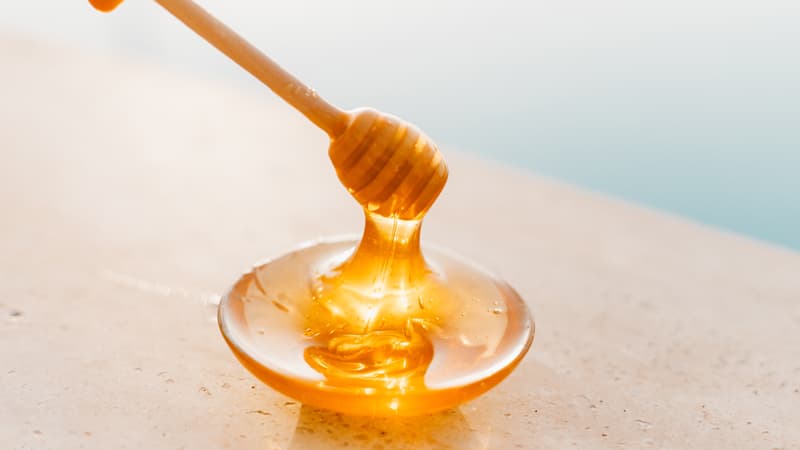Half of the honey imported into the EU is suspected of being adulterated, particularly through the addition of sugar syrups, according to a survey by European authorities released Thursday identifying honey from China and Turkey. The EU imports around 40% of its honey consumption.
The survey carried out by the investigation service of the European Commission and the European Anti-Fraud Office (OLAF) shows that out of 320 samples checked in 16 Member States, around 46% are suspected of infringing EU rules, although more than 14% noted during the last study in 2015-1017. In detail, 74% of the 89 honeys originating from China were considered suspect, as were almost all imported honeys from Turkey (14 out of 15).
The 10 honeys entered by the United Kingdom are considered non-compliant, “probably because honeys produced in other countries are mixed there before re-export.” Ukrainian, Mexican and Brazilian honeys are also set. Main fraudulent technique: the addition of sugar syrups (rice, wheat or beetroot) to lower the price, but the report also mentions the use of additives and colorings or the falsification of traceability information.
“Honey naturally contains sugars and under EU law it must remain pure: there can be no water or cheap sugar syrups artificially added to bulk up,” Olaf recalls.
“unfair competition”
“If the risk to human health is low, this type of practice deceives consumers and harms honest producers in the face of unfair competition,” explains the anti-fraud police officer, noting that the average value of imported honey was 2 €0.32/kg in 2021, compared to a cost of €0.40-0.60/kg for rice-based sugar syrups.
Of 123 exporters of honey to Europe, 70 are suspected of having adulterated their products, and of 95 controlled European importers, two thirds are affected by at least one suspicious lot. To date, “44 operators in the EU have been investigated and seven have been sanctioned,” Olaf notes. Of the 21 samples taken in France, only 4 were “royal honey”. In Germany, which concentrates a third of European imports, half of the 32 samples taken were suspicious.
“This alarming result shows that the European market is a real sieve that allows fraudsters to sell their counterfeit products,” Foodwatch reacted. The consumer defense NGO calls for “means of control at height”, “a harmonized methodology for the detection of fraud” and obligations of transparency in the information provided: “The opacity of fraudulent food must be corrected in any urgent way”, has saying.
Source: BFM TV


